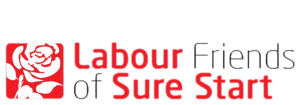On the 11th March the Education Committee took evidence from Sam Gyimah MP, Parliamentary Under-Secretary of State for Childcare and Education, in a follow-up session to the Committee’s inquiry into Sure Start children’s centres.
Lack of direction
A recurring theme of the meeting was the Minister’s lack of strategy and direction. The government have chosen not to take immediate action on the mismatch between the core purpose and Ofsted framework, to introduce a clearer core purpose or an outcomes framework. They also have no plan on how to help failing centres other than to leave it down to local authorities.
The commission, local authorities, Barnando’s, Ofsted and others were all calling for greater clarity around the core purpose, but what they described as “not clear” and “wanting” Mr Gyimah labelled “sufficiently broad” and “flexible.” Changes to rectify a mismatch between the core purpose and the Ofsted framework have also been delayed for at least another year; but despite the current confusion for people at Ofsted the government will take no immediate action.
Moreover, contrary to evidence and recommendations from the commission the Government has decided that it will not take the lead in providing a national outcomes framework to solve the lack of clarity around measuring outcomes. Instead an invaluable framework – which will provide a basic standard to be able to work out who is doing well – has been left to the voluntary sector.
Recent Ofsted figures showing that less than 50% of children’s centres reach a good standard suggests that the government also needs a serious strategy for dealing with failing centres. It was Gyimah’s firm opinion however that the responsibility be left with local authorities, a position that would be unacceptable had Ofsted made the same assessment about schools. It seems backward that failing schools are put into special measures, make headlines and have Ministers rushing to act whilst centres are simply left with the local authority, given that the early years are more important in providing us with socially just outcomes.
Figures
Another theme of the meeting was the way in which the Minister used figures to give a far more favourable picture of the current environment of closures and budget cuts. This left committee members describing the Minister’s figures as “disingenuous” and questioning whether he had ever read the book “How to Lie with Statistics.”
In 2010 there were 3,631 children’s centres and now, after five years of a Conservative-Lib Dem government, there are 2,861 but Mr Gyimah would only admit to 145 outward closures, insisting that there are 674 additional sites. Alex Cunningham enquired: “what are those additional sites?… Are they replicating the services that have been lost with the closure of 800 children’s centres?” The Minister replied that Sure Start centres have “reconfigured” services and adopted a hub and spoke model “where you work out of a main children’s centre but visit other community venues.” But services across the country are not being “reconfigured” they are being cut; as main centres downgraded and classed as spokes are having their staff and services reduced.
Alex Cunningham also enquired into what was being done about councils like Haringey which announced a £1.4 million cut in funding for children’s centres and a total funding reduction of 50% since 2012. Whilst Pat Glass enquired into the huge range of services that the Early Intervention Grant (EIG) is expected to pay for with only a slight increase in funding.
On the point of local authority budget cuts Gyimah simply said; “we know that different local authorities are in different situations” – a very short and vague answer to a rather important point about the lack of funding councils now have to carry out their duties.
He also insists that there has not been a cut to early intervention funding, adding that the £2.4 billion does not include other funding that is available. In reality, councils have far less to spend as they see fit on Sure Start and additional services (£1.7 billion in 2013/14 and £1.6 billion in 2014/15) as the government has top-sliced hundreds of millions from the EIG to pay for the two year old childcare offer.
Flaws in government approach
Finally, it was clear in the meeting that there are flaws in the direction the government is taking children’s centres.
Mr Gyimah expressed his approval for the shifts from universal to targeted services during the meeting. There is a real risk however that turning Sure Start children’s centres into hubs for vulnerable families, as opposed to all families, will involve: stigma, a failure to spot those most in need, missing families on the cusp of poverty, or middle class families enduring newly straitened economic circumstances, not to mention the long term social costs of separating families according to background.
Gyimah also dismissed the idea that removing the requirement to provide childcare pushed vulnerable families away from centres that are now supposed to be targeting them in particular. Childcare provision, however, is recognised as an important incentive to draw in the hardest to reach families where they can then receive additional targeted support.
Evidence also suggests that the 15 hours of free childcare the government provides is not enough, of a high dropout rate for two year olds and disparities in geographical take-up. Gyimah claimed that the 15 hours is based on EPPE research, and although he had no information on drop-out rates he acknowledged huge regional variation in the take-up of the offer.
